This article was updated on January 13th, 2022
Old dog anxiety can come on slowly over time or appear seemingly out of nowhere. It could manifest during the day, or during the night.
Even if Fido has always been a confident, happy dog, it won’t be unusual for him to begin to show anxious behavior when he reaches his senior years.
Sometimes this is a result of the normal aging process. At other times, it can be caused by physical or psychological problems.
Our older dogs are like older people – not always too keen on change, finding security in routine and habit, and maybe feeling less confident in their own abilities. Being almost on the far side of “middle-age” myself, I can relate to this and sympathize!
In this article, we will review the most common symptoms and causes for senior dog anxiety, as well as treatment options and solutions. If your senior dog is mostly showing anxiety at night, you can also jump to this section to learn more: Senior Dog Anxiety at Night.
Symptoms of Anxiety In Dogs
These can vary depending on what is causing your dog to feel anxious or scared, but generally you’ll see at least a couple, and possibly many more, of these symptoms:
- Excessive panting
- Shaking or trembling
- Sleeping problems – including both more, or less, time spent asleep
- Loss of appetite
- Yawning
- Restlessness
- Clingy-ness
- Barking, whining or howling when left alone
- Loss of bladder/bowel control (either mild or severe)
- Personality changes
- Depression, disinterest or lethargy
- Excessive salivation
Types of Anxiety In Older Dogs
Nervousness, fear, or anxiety can take different forms, and be triggered by different situations.
Sometimes it’s a more generalized behavior and your dog may just seem “jumpier” than usual, perhaps a little unsettled, and maybe less inclined to enjoy things that he previously did.
Other times it’s much more specific. For example, a fear of thunderstorms, of being left alone when you go out (separation anxiety), of strangers, loud noises, or more.
Anxiety can also be just one symptom of a systemic or more wide-spread health problem such as canine cognitive dysfunction (aka “Old Dog Syndrome”), which is similar to human Alzheimer’s.
It can also start as a reaction to a stressful situation or experience. Sort of like canine PTSD.
Let’s take a look at all of these types of situations and see how we can help our Golden Oldies manage their fears and anxieties so that they can maintain a good quality of life.
7 Common Causes of Anxiety in Old Dogs
Even if Fido has never complained about being left at home while you go to work, or go shopping or visiting, it’s not unusual for him to start doing so when he reaches old age.
Why is this? Well, although our dogs can’t tell us exactly what’s upsetting them there are several possibilities:
1. He isn’t feeling well or is in pain
Your dog relies on you for everything; you’re his “security blanket” when he’s scared or hurt.
Senior dogs can suffer from all sorts of health problems, some of which may be causing him symptoms of pain or discomfort – these can include anxious or unusual behavior.
This is understandably scary for him and he just knows that he feels better, and safer, when you’re close by.
The end result is often a clingy, “velcro” dog with separation anxiety, one who wants to be right next to you at all times.
2. Canine Cognitive Dysfunction (“Old Dog Syndrome”)
Like human Alzheimer’s Disease, this condition causes a whole slew of psychological and physical symptoms.
These include changes in sleep patterns, loss of appetite, confusion, disorientation, loss of bladder/bowel control, restlessness, compulsive behavior, and much more.
However, just that short list gives you a good idea of why Fido might be feeling scared or worried, especially when left alone.
The separation can increase confusion, disorientation, and compulsive behavior.
If you think your Golden Oldie may be suffering from this condition, visit the Old Dog Syndrome page for more information on symptoms, diagnosis, and treatment options.
3. Loss of bladder/bowel control
For a dog who’s always had good toilet habits, a reduction in the ability to control his bladder or bowels can cause some serious stress.
When he has an “accident,” he knows that he’s made a mess which isn’t allowed, but he’s also unable to help himself.
If you’re gone and he’s alone, he may be really frantic to get outside to pee or poop, but there’s no-one to help him do that.
4. An after-effect of a traumatic experience
Older dogs can have their self-confidence shaken by one bad experience.
Whereas a puppy or younger dog may take a scare in their stride and bounce back quickly, an older dog is more likely to be traumatized and to show short-term or even long-term after-effects.
This can be caused by something which caused him pain (such as a veterinary procedure or a less-than-gentle grooming session) or by something which scared him (such as a July 4th fireworks display, or a run-in with a bossy dog at the dog park).
5. Failing senses
As Fido gets older his senses start to become less acute.
He may not see, hear or smell as well as he used to.
This is frightening enough when you understand what is happening, but for a dog who only knows that he can’t see where he’s going or is living in a very quiet world, it can be truly terrifying.
We humans don’t know how lucky we are to be able to treat any age-related degeneration with relative ease. Is your hearing going? Just book an appointment with an audiologist who will set you up with a hearing aid in no time. Need glasses? Choose here to select a pair you like and your new specs will be with you in a matter of days.
But our canine counterparts aren’t so fortunate, and the effects of growing older can have a profound effect on their physical and mental health.
The results of fading eyesight, hearing, and smell in older dogs usually results in behavior changes which include increased periods of sleep, loss of appetite, and loss of interest in games or walks. Your dog may even look (and feel) depressed.
6. Other age-related health problems
Aging is a natural process but it’s also a degenerative one.
Bones, joints, ligaments, bladder, bowels, eyes, ears, the nose, the brain, the heart, and other major organs all have declining function, and this makes everything more difficult for your senior dog.
Also, as Fido gets older, the body produces lower levels of the hormones designed to combat stress.
Any combination of these is hard on your pet and makes him much more prone to getting anxious in situations he would previously have sailed through.
7. Change in environment or routine
Dogs are creatures of habit and they thrive on routine and predictability.
For older dogs this is especially true, and any big (or sometimes even small) changes in your dog’s daily routine, environment, or family life can really throw him for a loop!
The adjustment to anything new will be longer for an older dog than it will be for a younger one, and the changes may even cause short-term physical symptoms in addition to the anxiety (this might include lethargy, loss of appetite and depression).
Senior Dog Anxiety at Night
A frequent issue with senior dogs is anxiety that seems to be particularly pronounced during the night. Why do older dogs sometimes suddenly feel more anxious at night? There can be several reasons including:
- Pain: They may struggle to get comfortable at night due to old age aches and pains. Your vet may recommend pain relief medication if it is really affecting your dogs ability to sleep.
- Cognitive dysfunction: If your dog suffers from doggy dementia, then the symptoms are often more profound at night – a dark environment and lack of human interaction can add to the confusion. Consider allowing your dog to sleep nearby to you or leaving some lights on to help them orientate themselves.
- Separation anxiety: If your dog is used to being by your side all day, then suddenly being separated at night might make them anxious, especially as they get older and feel more vulnerable. Consider allowing them to sleep nearby to make them feel more secure.
Treating Older Dog Anxiety Issues
The way you handle your dog’s anxiety depends on the reasons for his fears and, to some extent, his own individual personality. Treatment options include behavioral and lifestyle modifications, natural treatments and products, and some medications.
Here’s a closer look at how these fit with certain types of anxiety…
1. Treating Separation Anxiety in Dogs
Separation anxiety is a very common problem in both puppies and adult/senior dogs and there are many ways to manage it, although it can be difficult (sometimes impossible) to fully eliminate it.
In older dogs, this is often a new behavior and may be a short-term reaction to a stressful situation or experience. Or it might be a more long-term issue with physical causes.
Either way, there are some tried-and-tested tips and techniques you can use to reduce your dog’s anxiety levels and help him feel more secure.
Make the house feel less empty
This sounds strange, but it can really help your older dog feel less scared when you’re not home.
If you leave the TV or radio playing the house will feel more lived in. If you have a CD player you can try one of the Dog Relaxation CDs.
Also, leave a light or two on so that if you’re out and night falls, or it’s already late, your dog isn’t left in the dark.
Give him a security object
Make sure Fido has access to his favorite toys, bed, and belongings.
Leaving an old piece of your clothing in his bed or crate with him can help him feel closer to you and give him comfort. Just don’t pick something you want to wear later!
Most senior dogs are no longer big “chewers,” so it’s safe to leave them with clothing or soft toys. But if your dog is the exception to the rule, then obviously this isn’t a good choice.
Try natural anti-anxiety products
There are many natural products which are specifically designed to have a calming effect on dogs.
In our family, we’ve used natural pheromone products with great results for a variety of different situations.
There are collars, room diffusers, and sprays – all made with natural dog pheromones (secreted by mother dogs to calm puppies).
They’re safe, non-habit-forming, and surprisingly effective.
But they are not an instant fix. It takes 24 – 48 hours for the pheromones’ effects to “kick-in,” so these products are best used on a regular basis as an anxiety-maintenance program.
Other popular natural anti-anxiety treatments include Bach Rescue Remedy for Pets and Homeopet Anxiety Relief For Dogs.
In a recent veterinary research study, it was found that supplementing your anxious dog’s diet with Omega-3 Fatty Acids resulted in a decrease in anxious behavior of between 40% and 50%. What’s even more interesting was that this was true for 87% of the dogs studied. Impressive results.
You can find a list of Omega-3 Fatty Acids products on Amazon below:
2. Treating Specific Anxiety-Inducing Situations
If you plan ahead for this type of anxiety you can often reduce the severity of the symptoms.
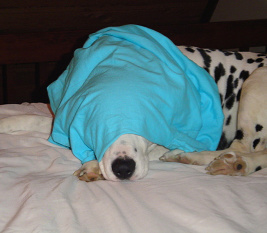
Obviously, avoiding whatever it is that causes the problem is the first step.
Desensitizing your dog to the trigger is a possibility, but it needs to be done correctly, and start off extremely slowly, ideally under the advice of a canine behaviorist. You can buy dog desensitization CDs for certain noises, which you can play extremely quietly initially, working up the volume over the course of several months.
Of course, it’s not always possible to eliminate the trigger, nor is it necessarily wise. But limiting his exposure, with the exception of controlled desensitization, is almost always do-able.
If it’s thunder or fireworks that suddenly terrify your dog, you can try to minimize exposure to the noise as much as possible.
Perhaps set him up in a small interior room with no windows, where there’s a TV or radio playing to help mask the noise and light outdoors.
If he is happy in his crate, tuck him in there with a heavy bedspread across the crate to muffle the sound and a soft crate pad or blanket to absorb the vibrations (but make sure he doesn’t overheat!).
Saving an especially tasty or beloved toy for this type of situation can also be a good source of distraction.
You can also use the natural products recommended in the section above (the pheromone products need to be used for 24 – 48 hours prior to the anxiety-making situation though).
Also, a Thundershirt can be very effective in this type of situation. These were designed with storm-induced anxiety in mind.
It works on a similar type of principal to swaddling in babies. By wrapping the body firmly but gently, it helps calm naturally and safely.
3. Treating Other Types of Anxiety Common with Older Dogs
The other causes of anxiety or fear in senior dogs include physical problems, such as failing senses, or specific conditions such as incontinence, poor eyesight or hearing, and canine cognitive dysfunction.
Plus, generalized anxiety as a result of the normal aging process affects behavior and emotions.
Here are some tips to help with all of these.
Maintain a predictable routine & environment
Dogs like things to stay the same, and this is especially true of senior dogs.
Just like human seniors, old dogs are often pretty set in their ways and wary of anything new or different.
Whether it’s the food they eat, where they sleep, or what time they go for their daily walk, it can really help to reduce anxiety by keeping things predictable.
Routine gives them stability, and this in itself can be a good antidote to stress.
Plus if your old dog’s sight isn’t as good as it once was, or he’s not as steady on his feet, moving the furniture around or changing where his bed or food bowl are kept is going to stress and confuse him. Obviously it’s not always possible to keep everything the same. Maybe you have to move to a new house, or go on vacation, or a child leaves home or the mother-in-law moves in. There are times when life can be messy, complicated, and unpredictable.
Regardless of what else is happening, try to keep your dog’s routine as predictable as possible – mealtimes, walks, bedtime, playtime, where the toys are kept, where the treats are kept, where he sleeps: each one counts.
Going Away or On Vacation?
If you go on vacation and your dog isn’t a good traveler or isn’t in good health, allowing him to stay in his own home rather than go to a boarding kennel will be easier for him. If you have a friend or relative who would be willing to come and stay with him that’s perfect. Failing that, there are many great pet-sitting organizations who can help you find a reliable, responsible pet-sitter. Or ask friends or relatives who have gone this route before for personal recommendations.
Use products that can help keep your dog happy and secure
In the sections above I’ve mentioned certain natural anxiety-reducing products that can help, such as the Thundershirt, Adaptil pheromone products, and dog relaxation CDs.
There are other things that can help too. These include:
- A comfy crate – dogs often feel safer when they have their own “den”
- Rugs and non-slip mats – for slick flooring to help Fido keep his feet
- Socks or bootees – another way to help prevent your dog from slipping or falling
- Diapers or belly bands – these can help with the stress and mess of incontinence
- Mobility aids – such as harnesses or slings to prevent falls or injuries
- Use Night Lights – on stairs, in hallways, or wherever needed
Check out our Exercising Older Dogs page for socks and boots, harnesses, and slings. Also, our Dog Incontinence Products page for the best diapers, belly bands, and more.
There are lots of natural products that can help reduce anxiety in dogs of all ages.
These include herbal and homeopathic remedies, supplements, accessories, and more.
Find a full range of the best, most effective choices here: Natural Remedies For Dog Anxiety
4. Veterinary Help and Medication for Old Dog Anxiety

If you’ve tried all the appropriate tips and advice for your older dog, and none of them are really helping, or if he seems very agitated (or seems to be in pain or distress), then it’s time to visit your veterinarian.
There are medications which can treat many of the health issues which plague senior dogs and getting something physical under control may alleviate the anxiety – at least to some degree.
Also, there are drugs which can be used for dogs who are suffering from severe anxiety or fear issues, but only a veterinarian can decide whether this route is appropriate, advisable, or safe for your golden oldie.
For example, if your dog seems to be anxious due to being in pain then anti-inflammatory pain-relieving medication can be prescribed by your vet. Arthritis is a common cause of pain and anxiety in older dogs, so non-steroidal drugs such as meloxicam can help ease these symptoms.
If your dog is anxious due to canine cognitive dysfunction then some drugs such as selegiline hydrochloride might help. While there is no cure to CCD, this drug may alleviate some of the symptoms.
If your dog suffers from severe anxiety associated with loud noises then diazepam may help. While this isn’t a drug you’d want your dog to be taking all the time, it can be effective in calming your dog down at certain times of the year such as New Year or Fourth of July when there could be a lot of loud fireworks.
One More Thing that The Owner Can Do to Help
You mean the world to your elderly dog and he relies on you for everything. He’ll also take a lot of his cues from you, so please do your best to stay calm, lovingly patient, and cheerful – for his sake.
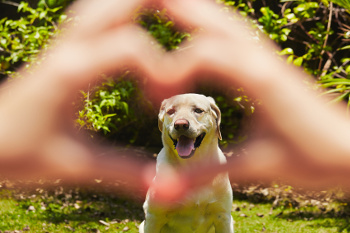
Don’t get angry or frustrated with him, even if his fears seem silly or unnecessary to you. They’re important and very real to him!
If he’s having trouble with his bladder, don’t scold him. He already feels anxious, upset, and worried about his lapses in control.
Instead of getting mad, get him diapers or a belly band, or take him outside much more often.
Don’t stop taking him for walks unless your veterinarian says that’s best or he has severe mobility issues. Just make the walks shorter, instead.
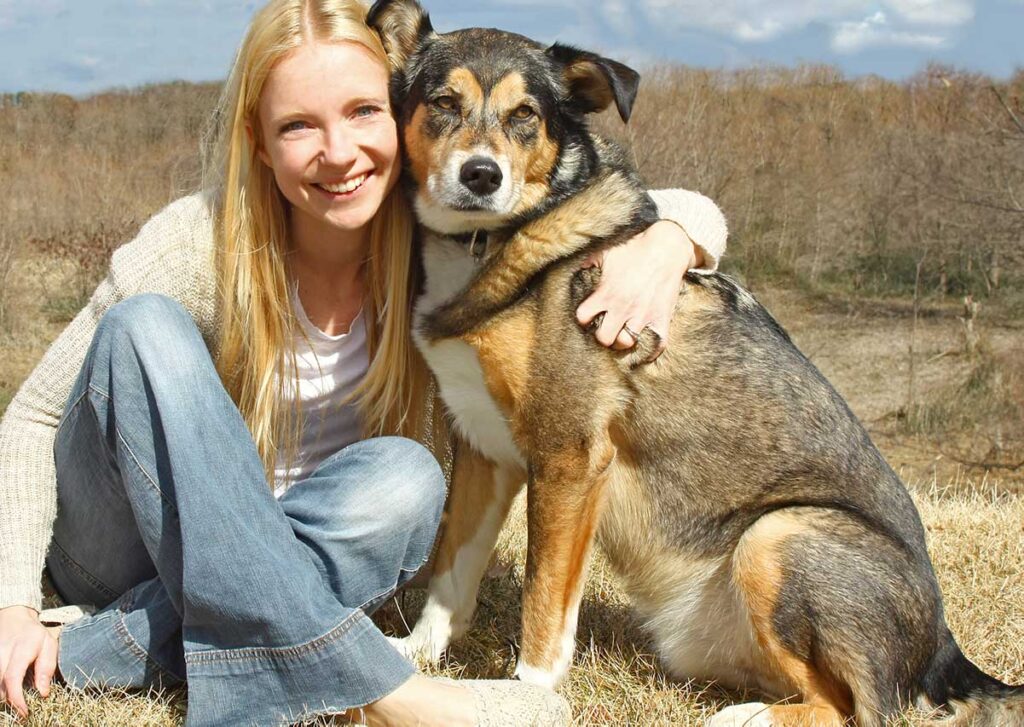
He may not be able to run and jump anymore, but he can still practice his basic obedience and get a tasty reward for “sit” or “down” (after all he’s doing a lot of those anyway!)…. or he may be able to chase a slowly rolling ball or catch a flying treat.
Fido may be slower, or grayer, or less confident than he used to be, but he’s still the same dog and it’s up to you to make his senior years as comfortable, happy, and anxiety-free as possible.
Good luck!
Disclaimer: This website's content is not a substitute for veterinary care. Always consult with your veterinarian for healthcare decisions. Read More.


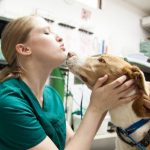

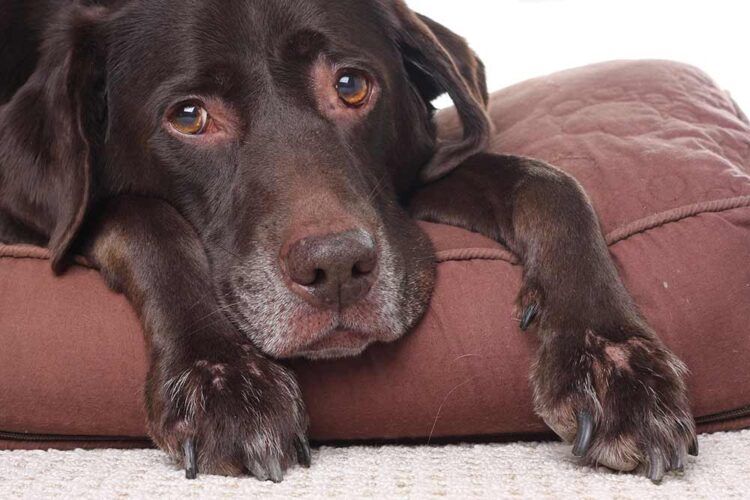

My 16 year old Bichon Frise has excessive separation anxiety. Vet recommends trazadon. Should this be given daily or only when left alone?
Only when left alone. It was prescribed to me for constant pacing and anxiety in my blind, senior Boston terrier. Even a half dose knocked him out and disoriented him. He started can and rested, but was really hard to get up and going again.
I give my 13 year old Lab Trazadone at night before bed, he gets nighttime anxiety. What I would recommend is give your dog trazadone a few times while you are at home so you can see how your dog reacts. It takes about an hour for my dog to feel the effects. When he first started taking it he was walking around like he was drunk. Had to lower dosage for him. But now it’s great for him! He’s more relaxed and sleeps through the night so now I get to sleep too! Good luck
Great tips thank you, I have a 3 year old labrador but she is very anxious so I am very grateful for anything that may help her. Thank you.
Thanks for highlighting the symptoms and treatment of separation anxiety in the dogs. Every pet owner should be aware of basic aspects of separation anxiety and factors which should be taken into consideration to keep the dogs physically and mentally healthy. Separation anxiety is triggered by loneliness and is considered a kind of mental disorder. Physical exercise and suitable medication should be provided to the dogs suffering from such kind of disorders.
My pound puppy boxer is now a senior. The vet believes she was used for puppies and dumped. I mean when we got her the milk was still leaking from her teats. She never could have squeaky toys because she cried. I think she thought it was her puppies because she would try to nurse them. Anyway this girl has been through a lot and finally accepted our love but lately seems VERY anxious. She likes to DIG into sheets sofas beds laundry piles until she has ripped them up. My $500 futon is in pieces. She never did this before. I feel I need to crate her while we are gone and I am going to try to get the homeopathic stuff 1st to see if it helps. But I am looking for a new bed for her because she SHREDDED it. Any suggestions on what to get that is comfy on old bones (shes about 8) that she cannot shred?
My 15 yr old sheltie started having anxiety only when I leave. My husband is home since his retirement and she still howls and cries. We have have tried almost everything mentioned here. I will be going back to work soon so I leave a while everyday. It’s getting worse.
Help!